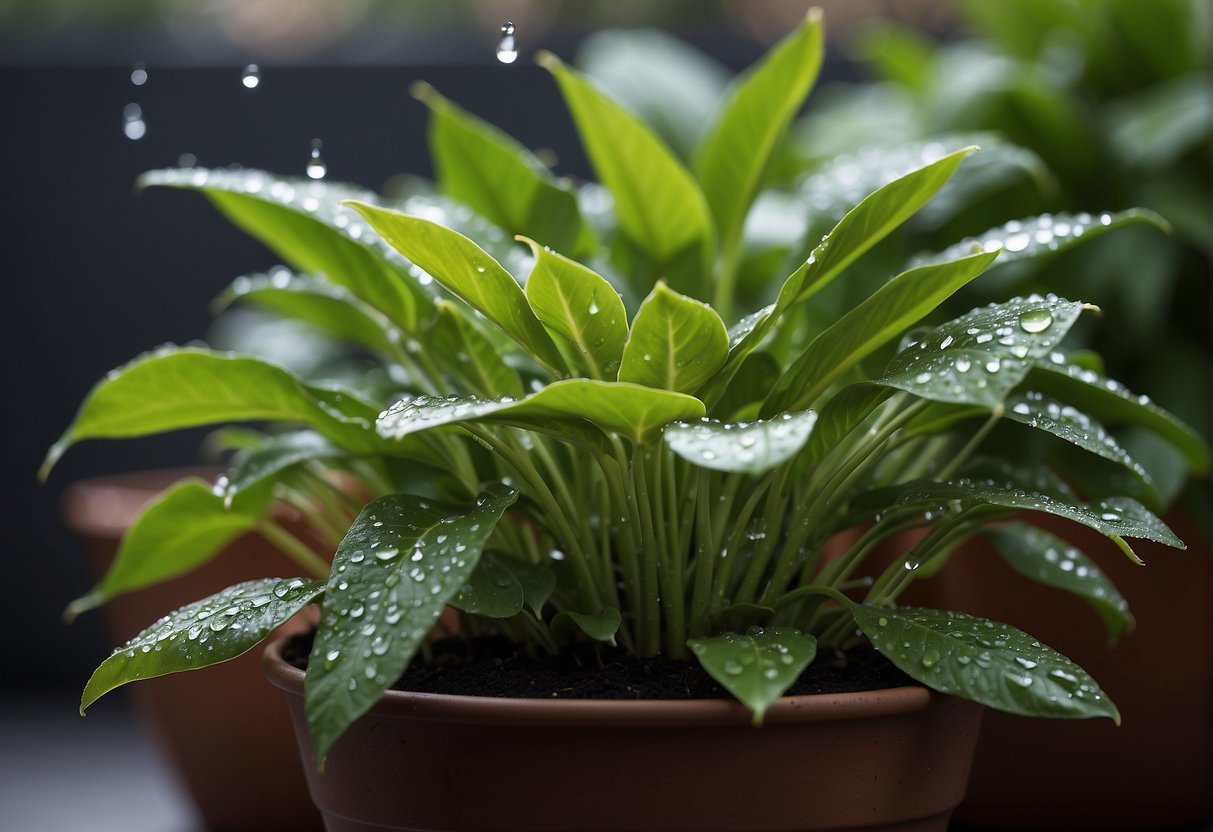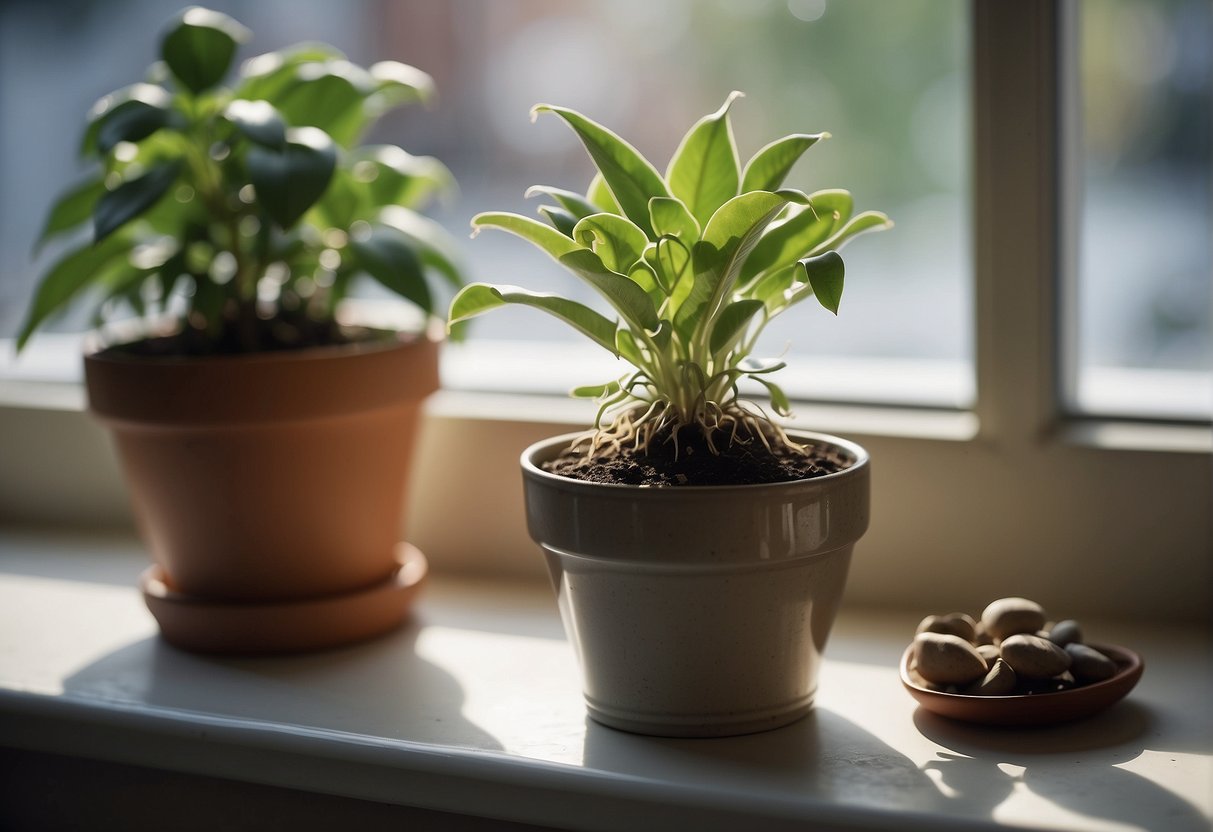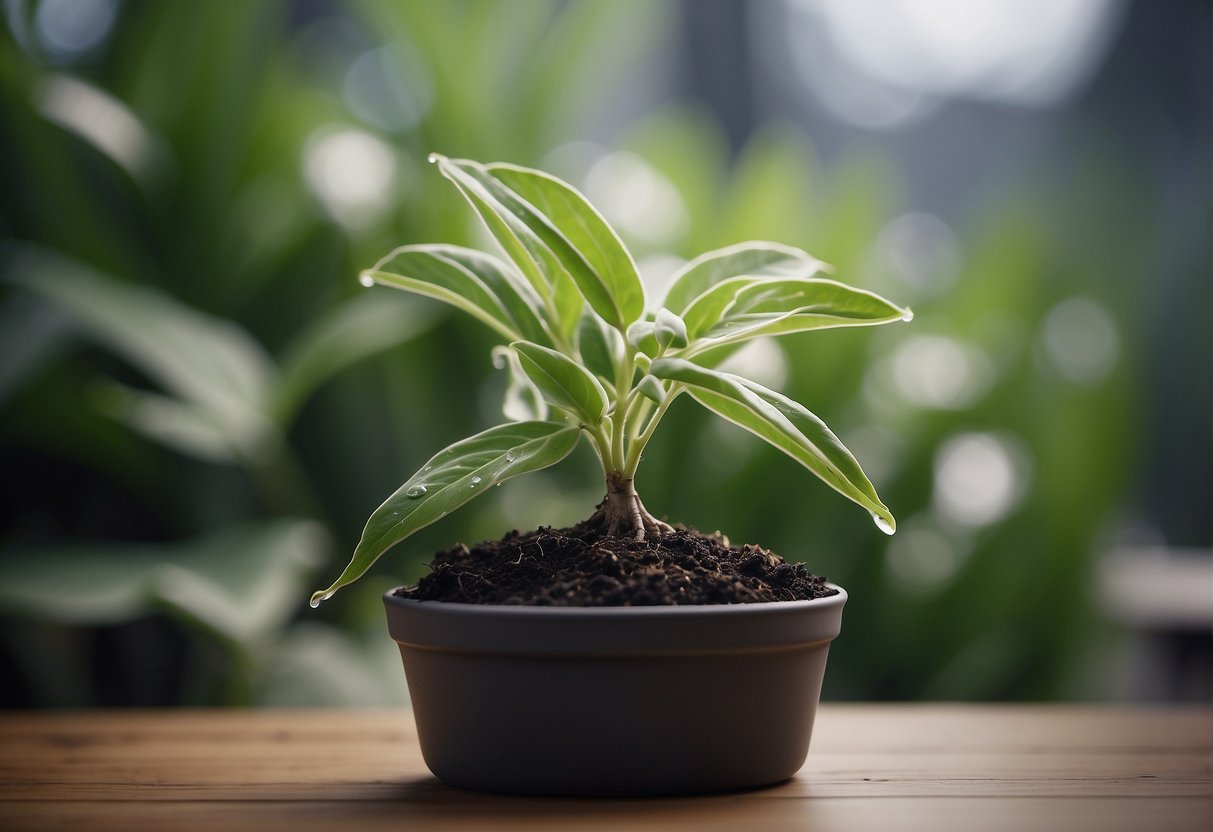Does Sugar Water Help Plants? Exploring the Benefits and Drawbacks
If you’re a gardener, you might have heard about using sugar water for plants. But does it really work? The short answer is that it depends on various factors such as the type of plant, the amount of sugar, and the frequency of application. In this article, we’ll explore the pros and cons of using sugar water for plants and provide expert tips on how to use it effectively.

The Basics of Plant Nutrition Plants need nutrients to grow, just like humans need food to survive. These nutrients include macronutrients such as nitrogen, phosphorus, and potassium, and micronutrients such as iron, zinc, and manganese.
Plants also need water and sunlight to carry out photosynthesis, the process by which they produce their own food. While sugar is not a nutrient that plants need, it can provide them with a quick energy boost in certain situations.
Key Takeaways
- Sugar water can provide a quick energy boost to plants in certain situations
- Using sugar water for plants has both pros and cons
- To use sugar water effectively, follow expert tips and best practices
The Basics of Plant Nutrition

Plants require specific nutrients to grow and thrive. These nutrients include macronutrients, such as nitrogen, phosphorus, and potassium, and micronutrients, such as iron, zinc, and copper. In addition to these nutrients, plants also require water, sunlight, and carbon dioxide to carry out photosynthesis.
Photosynthesis and Sugar Production
Photosynthesis is the process by which plants convert light energy into chemical energy in the form of sugar. During photosynthesis, plants absorb carbon dioxide from the air and water from the soil. With the help of sunlight, plants use these raw materials to produce glucose, which is a type of sugar. This glucose is then used by the plant for energy and to build new cells.
Role of Water in Plant Health
Water is essential for plant growth and health. It is required for photosynthesis and for the transport of nutrients and minerals throughout the plant. Water also helps to regulate plant temperature and prevent dehydration.
When plants do not receive enough water, they can become stressed and wilt. If water stress continues, it can lead to permanent damage or death of the plant. On the other hand, overwatering can also be harmful to plants, as it can lead to root rot and other fungal diseases.
In summary, plants require specific nutrients, including water, to grow and thrive. Photosynthesis is the process by which plants produce sugar, which is used for energy and to build new cells. Water is essential for plant health, as it is required for photosynthesis, nutrient transport, and temperature regulation.
Understanding Sugar Water

Sugar water is a mixture of water and sugar that is often used as a homemade plant fertilizer. It is believed that sugar water can provide plants with energy and help them grow faster. However, before using sugar water on your plants, it is important to understand its composition and how plants absorb solutions.
Composition of Sugar Water
Sugar water is simply a solution of sugar and water. The amount of sugar used can vary depending on the desired concentration. The most common concentration is one tablespoon of sugar per one gallon of water. This concentration is believed to be safe for most plants.
How Plants Absorb Solutions
Plants absorb water and nutrients through their roots. When a plant is watered, the water moves through the soil and into the roots, where it is absorbed by the plant. The sugar in sugar water can help the plant absorb water and nutrients more efficiently.
However, it is important to note that plants can only absorb a certain amount of water and nutrients at a time. Using too much sugar water can actually harm the plant by causing root burn or attracting harmful insects. It is important to use sugar water in moderation and to monitor the plant for any signs of stress.
In summary, sugar water can be a useful homemade plant fertilizer when used in moderation. Understanding its composition and how plants absorb solutions can help you use it safely and effectively.
Pros and Cons of Using Sugar Water
Potential Benefits for Plants
Using sugar water on your plants can have some potential benefits. Sugar is a source of energy that can be used by microbes in the soil to break down organic matter and release nutrients for plants to use.
This can help to improve soil health and promote healthy plant growth. Additionally, sugar water can be used in small amounts to revive dying plants by providing a quick boost of energy to the plant’s system.
Risks and Drawbacks
However, using sugar water on your plants can also have some potential risks and drawbacks. Sugar water can attract harmful microorganisms that can affect the plant’s health and even kill them. Additionally, sugar water can cause a buildup of salts in the soil, which can lead to root burn and other issues. Overuse of sugar water can also lead to imbalances in soil pH levels, which can negatively impact plant growth.
It is important to use sugar water sparingly and in moderation to avoid these potential risks and drawbacks. If you do decide to use sugar water on your plants, make sure to dilute it properly and only use it on plants that are in need of a quick energy boost.
Remember to always monitor your plants for any signs of stress or damage, and adjust your watering and fertilization practices accordingly.
Application of Sugar Water in Gardening
When to Use Sugar Water
Sugar water can be used in gardening to stimulate microbial activity in the soil and provide a short-term boost to plants. It is best used during times of stress, such as transplanting or extreme weather conditions. However, it should not be used as a long-term solution for plant growth.
Preparing the Solution
To prepare sugar water for gardening, mix one tablespoon of sugar with one gallon of water. You can use any type of sugar, including white, brown, or molasses. Make sure to stir the solution until the sugar is completely dissolved.
Methods of Application
There are several methods of applying sugar water to plants. One way is to water the plants with the solution using a watering can or hose. Another method is to spray the solution directly onto the leaves of the plants. However, be careful not to spray too much, as this can cause damage to the leaves.
In conclusion, sugar water can be a helpful tool in gardening when used appropriately. By following the guidelines for preparing and applying the solution, you can provide a short-term boost to your plants and stimulate beneficial microbial activity in the soil.
Expert Tips and Best Practices
When it comes to caring for your plants, there are a few expert tips and best practices to keep in mind. Here are some things to consider when using sugar water on your plants:
- Use in moderation: While sugar water can provide a quick energy boost to your plants, it’s important to use it in moderation. Too much sugar can attract harmful micro-organisms and even harm or kill your plants.
- Dilute with water: To avoid over-saturating your soil with sugar, dilute the sugar water with regular water before applying it to your plants. A good rule of thumb is to use one tablespoon of sugar per gallon of water.
- Consider your plant’s needs: Not all plants will benefit from sugar water. Some plants, such as succulents and cacti, don’t need extra sugar and may even be harmed by it. Research your specific plant’s needs before using sugar water.
- Use as a supplement: Sugar water should not be used as a substitute for proper plant care, such as regular watering and fertilizing. Use it as a supplement to help give your plants a boost when needed.
By following these expert tips and best practices, you can safely and effectively use sugar water to help your plants thrive.
Frequently Asked Questions
What can I add to water to help my plants grow?
There are several things you can add to water to help your plants grow, including fertilizer, compost tea, and Epsom salt. However, adding sugar water is not recommended as it can harm your plants and even kill them.
How does sugar water affect plant growth?
While sugar is a vital part of what helps a plant grow, plants make their own sugar during the process of photosynthesis. There is no scientific evidence that feeding plants sugar water is conducive to plant health. On the contrary, it can harm your plants and even kill them. The Spruce
Can sugar water revive a dying plant?
Sugar, in diluted form, can help dying plants in the short term by providing a small boost to the plant’s naturally occurring sugars. Adding sugar can also help to encourage microbial activity in the soil to support a dying plant quickly. However, it is not a long-term solution and may not revive a plant that is already too far gone. Homes & Gardens
What is the best way to prepare sugar water for plants?
If you choose to use sugar water on your plants, mix one tablespoon of sugar with one quart of water and mist your plants with the solution once a week. Be sure to dilute the sugar well in the water to avoid harming your plants. Eco Family Life
Do some plants benefit more from sugar water than others?
Some plants, such as orchids and African violets, can benefit from a little sugar water. Orchids thrive in humid environments, and sugar water can help encourage healthy growth. African violets can also benefit from a small amount of sugar water. However, other plants do not benefit from sugar water and may be harmed by it. Eco Family Life
How much sugar should be mixed with water when feeding plants?
When using sugar water on your plants, mix one tablespoon of sugar with one quart of water. Be sure to dilute the sugar well in the water to avoid harming your plants.






